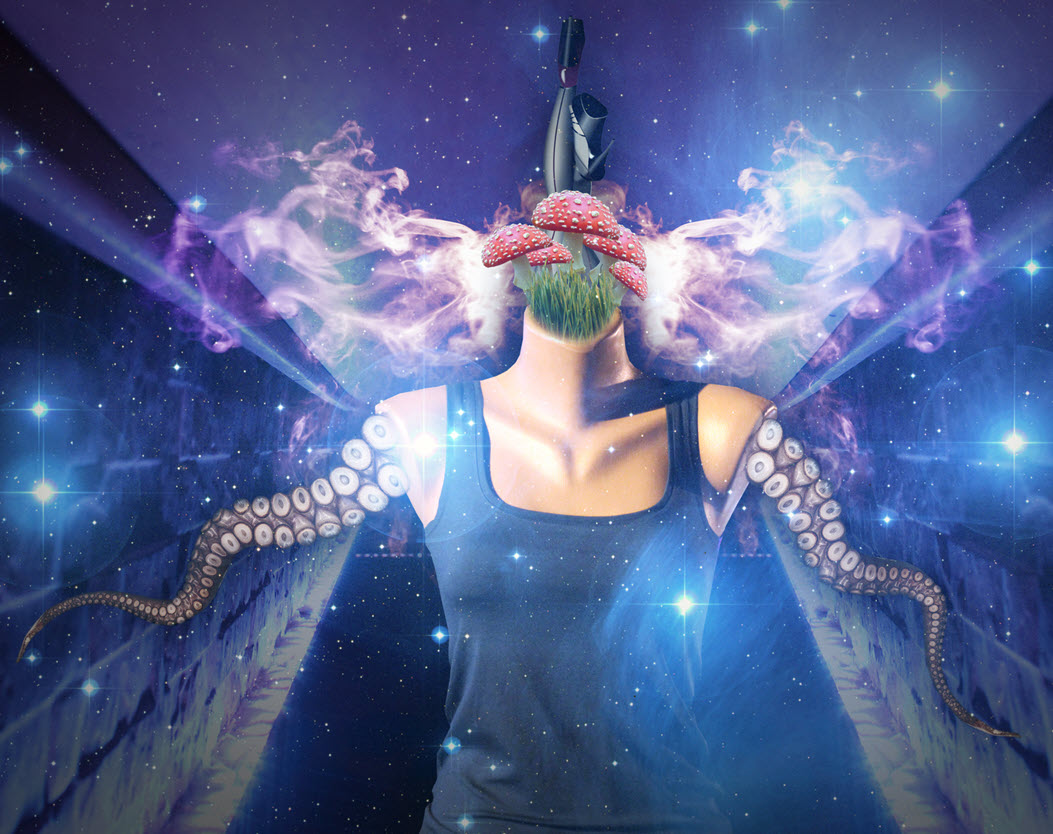
Having a bad trip? – Your DNA can explain how you will react to psychedelics
Bad trip? New study shows your DNA could be why you respond differently to psychedelics
The use of psychedelic therapies, either under the guidance of a doctor or on one’s own, is growing in popularity dramatically.
Psychedelics, particularly psilocybin mushrooms, mescaline, MDMA, and LSD, show promise in the mental health field: They have shown success in reducing the symptoms of mental health disorders even when conventional treatments have failed. From OCD to post-traumatic stress disorder, depression, anxiety and more, psychedelics bring new hope to people struggling to regain normalcy in their lives.
But that doesn’t mean it works for everyone.
Sometimes psychedelic therapy just doesn’t work for you the way you’d hoped. Some studies show that your genetics can be the reason why some people have good trips and some people have bad trips.
A Technology Networks report uncovers the results of a recent clinical study in which researchers at North Carolina’s Chapel Hill School of Medicine found that psychedelics produce the same effects as selective serotonin reuptake inhibitors (SSRIs), which are widely used. uses the first line of defense in the treatment of numerous mental illnesses. In particular, they studied escitalopram, an antidepressant.
But they also found that psychedelics and SSRIs don’t produce the same results in everyone — and genes may explain why. Researchers identified the primary receptor that psychedelics bind to in the human body: 5-HT2A, which has an almost identical chemical structure to serotonin. They also found that the gene variants they analyzed reflected mutations in a genome known as single nucleotide polymorphism (SNP); The mutations involved 7 alleles that are found in the biology of most people, explains Gavin Schmitz, first author of the work.
He tells Technology Networks that the frequency of alleles in humans ranges from 0.003% to 7.9%.
The research team then used assays to determine how different gene forms of 5-HT2A responded when bound to any of four common psychedelics: psilocin, LSD, DMT, and mescaline. “Once 5-HT2A is activated by a drug, it has several options as to what to do next,” says Schmitz. “It could signal through G proteins (Gq in this case) or recruit β-arrestins [a type of signaling protein], and the relative balance of choosing one option more often than the other depends on the drug. The two assays we use test these pathways independently, which means we can see how much the 5-HT2A prefers one pathway over another and how that balance changes with different drugs, different SNPs, and over time.” he said.
The researchers also discovered that combinations of receptor types and drugs analyzed varied in drug effectiveness. For example, one receptor was 9 times more responsive to mescaline than others.
“Clinical studies have found a variety of responses to psychedelics, with some patients seeing tremendous benefits after treatment and others seeing no benefits at all. Our study suggests that genes play a role in how sensitive we are to the effects of psychedelics,” Schmitz said.
When asked if he thinks our genes might have an impact on how we respond to psychedelic hallucinations, Schmitz said, “I think it’s absolutely possible.”
“We’re all a little bit different, and those differences are especially important when it comes to deeply personal experiences,” he concluded.
Other factors influencing the experience with psychedelics
Even with cannabis, we know that everyone’s endocannabinoid system is different. We also know that there are numerous factors that influence how we respond to stress – and the same is true for psychedelics.
In addition to genetics, other factors also play a role. Another study sheds some light by pointing to one’s state of mind when treated with psychedelics.
Study author Natasha L. Mason, a PhD student at Maastricht University, explains that the results of psychedelics use are linked to environmental, personal, and emotional factors. “There is renewed interest in the use of psychedelics in the treatment of certain psychiatric conditions such as PTSD, anxiety and depression. Importantly, it has been suggested that factors other than drug may influence the acute experience and mediate long-term effects. These factors include set (or the individual’s internal state, such as mood and well-being and certain personality traits) and setting (the environment in which the individual takes the drug,” Mason tells Psypost.
“With this renewed interest in the (therapeutic) use of psychedelics, it is important to define optimal circumstances for the administration of these substances. Because psychiatric populations often exhibit clinical features that are thought to negatively impact the psychedelic experience, it is important to determine whether psychedelics are still a viable therapeutic option and do not lead to (more) negative, adverse effects.” she explains.
Mason and her research team set out to analyze the responses of 1,967 psychedelics users from internet forums to surveys asking them about their psychedelics use. They were also asked about their personality, mood and other factors that might affect their travel.
Most subjects said they used psychedelics while in a good mood, but they also found that different psychedelics were associated with differences in the environment; for example, over 80% of them said they took psilocybin or LSD in the comfort of their homes, while more than half of them said MDMA was typically consumed at a social event and ayahuasca at a spiritual or ceremonial occasion.
“The most important finding from our study was the finding that individuals with clinical characteristics (low well-being and higher scores on certain personality traits) report psychedelic use with positive outcomes. Interestingly, when comparing the “clinical” group to the “healthy” group, the clinical group was more likely to experience a positive mood change,” she said.
These results are significant because they mean that certain factors should be considered by healthcare professionals when attempting to treat patients with psychedelics. It was also interesting that personalities played a large role in the outcome of their experiences with psychedelics, such as the fact that they discovered that those with higher neurotic scores tended to report more negative side effects.
HAVE A BAD TIME WITH EDIBLE OR SHROOMS READ MORE..

AFTER A BAD CANNABIS TRIP, HERE’S WHAT TO DO FIRST!

Post a comment: